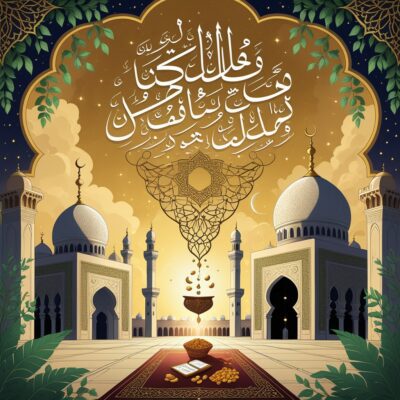how did islam limit personal freedom and protection
Islam’s view on personal freedom and protection is complex. It has shaped human rights in many ways over history. Understanding how Islam views freedom and protection is key to seeing its impact on individual rights.
Looking at Islam’s role in personal freedom and protection is complex. It involves Islamic law, cultural traditions, and history. By studying this, we can better understand how Islamic societies balance human rights and individual freedoms. This helps us see the ongoing debates about Islam, freedom, and protection.
Key Takeaways
- Islam has a complex relationship with personal freedom and protection, impacting human rights in various ways.
- Understanding the concept of freedom and protection in Islamic societies is essential for grasping the significance of Islam’s influence on individual rights.
- The intersection of Islam, freedom, and protection raises important questions about the balance between individual liberties and the role of Islamic law.
- Islamic law and cultural traditions play a significant role in shaping human rights in Islamic societies.
- Examining the historical context of Islamic societies can provide valuable insights into the ongoing debates surrounding Islam, freedom, and protection.
- The relationship between Islam, freedom, and protection is multifaceted, involving the consideration of various factors and perspectives.
The Historical Context of Islamic Law and Personal Rights
Islamic law, or sharia, has a long and complex history of over 1400 years. To grasp the growth of personal liberties and human rights in Islamic societies, we must look at its historical roots. Before Islam, Arabian society was based on tribes, where rights and freedoms depended on your tribe and status.
The arrival of Islamic law brought a big change in how personal rights and freedoms were viewed. It stressed justice, equality, and kindness, introducing rules for human behavior. Key rights in Islam include the right to life, freedom, and security, along with the freedom to think and speak.
Key Principles of Islamic Law
- Protection of human life and dignity
- Promotion of justice and equality
- Respect for individual freedoms and autonomy
- Emphasis on compassion and mercy
These principles have deeply influenced personal liberties and human rights in Islamic societies. Yet, how Islamic law is interpreted and applied has changed over time and place. This shows the complexity of personal rights and freedoms in Islamic societies. Knowing the history of Islamic law helps us understand these complexities better.
Understanding Freedom and Protection in Islamic Society
In an islamic society, freedom is tied to social duties and the community’s well-being. The community helps shape individual rights and freedoms. It ensures a balance between personal protection and the good of all.
Some key aspects of freedom in islamic society include:
- Right to practice one’s faith
- Right to education and knowledge
- Right to participate in the community
These freedoms are linked to social duties like respect, fairness, and justice.
As islamic society grows, it’s vital to see how islamic values meet modern human rights. Recognizing the value of protection and freedom helps people build a fair and harmonious community. This community upholds islamic principles and supports the well-being of all.
The Role of Sharia Law in Personal Liberties
Sharia law is key in Islamic societies for personal liberties. It’s based on Islamic law, aiming for justice, equality, and human rights. Some say it limits personal freedoms, while others believe it brings social justice and human rights.
Sharia law’s roots are in the Quran and Hadith, guiding life’s aspects, including personal liberties. It aims to improve individual and societal well-being, ensuring fairness and justice.
Key Aspects of Sharia Law
- Protection of human rights, including the right to life, liberty, and security of person
- Promotion of social justice and equality
- Regulation of personal relationships, including marriage and divorce
- Protection of property rights
Sharia law’s impact on individual rights is complex. It can promote justice and human rights but also restrict personal freedoms and women’s rights.
The role of Sharia law in personal liberties is complex. Understanding its definition, purpose, and impact is crucial. This knowledge helps in creating a more just and equitable society.
| Aspect of Sharia Law | Positive Effects | Negative Effects |
|---|---|---|
| Protection of Human Rights | Promotes social justice and equality | Can be restrictive in certain areas |
| Regulation of Personal Relationships | Provides a framework for marriage and divorce | Can be restrictive, particularly for women |
| Protection of Property Rights | Promotes economic stability and security | Can be limited in certain areas, such as inheritance |
Women’s Rights and Freedoms in Islamic History
In islamic history, women’s rights and freedoms have been influenced by many factors. The Quran and Hadith, key Islamic texts, lay the groundwork for women’s rights. They cover education, property, and protection from harm.
The idea of “ma’ruf,” or doing good and stopping evil, is central to freedom in Islamic societies. This concept has been used to both limit and expand women’s rights over time. Some argue it supports women in public life, while others see it as a reason to restrict their freedoms.
Despite these challenges, women have made significant contributions in islamic history. Aisha, the Prophet Muhammad’s wife, was a renowned scholar and leader. She played a crucial role in shaping Islamic law and tradition. Other notable women, like Khadija and Fatima, were known for their intelligence, courage, and protection of their communities.
Today, women’s rights and freedoms are still a pressing issue in many Islamic societies. While some countries have made strides, others face challenges like gender-based violence and limited access to education and jobs. It’s crucial to promote women’s rights and freedom in Islamic societies. We must strive for a future where everyone enjoys equal rights and freedoms.
| Country | Women’s Rights | Freedom | Protection |
|---|---|---|---|
| Turkey | High | Medium | Medium |
| Egypt | Medium | Low | Low |
| Iran | Low | Low | Low |
Economic Freedom and Property Rights Under Islam
In Islamic societies, economic freedom is tied to property rights. These rights are safeguarded by Islamic law. This protection lets people start businesses, which boosts the economy.
Property rights are key for economic freedom. They let people own and manage assets. This way, they can invest and join the economy.
Business ethics are crucial in Islamic economies. Islamic law stresses fairness, justice, and social responsibility in business. This means honesty, transparency, and respect for others’ rights. Businesses following these values help everyone in society.
Some important points about economic freedom and property rights in Islam are:
- Protection of private property
- Freedom to start businesses
- Right to inherit and own assets
- Focus on business ethics and social responsibility
In summary, economic freedom and property rights are vital in Islam. They help the economy grow and society thrive. By following these principles, people and businesses can make society better and more prosperous.
| Aspect | Description |
|---|---|
| Protection of Private Property | Islamic law protects the right to private property, ensuring individuals can own and manage assets. |
| Freedom to Engage in Commercial Activities | Individuals have the freedom to engage in commercial activities, promoting economic growth and development. |
| Right to Inheritance and Ownership of Assets | Islamic law emphasizes the importance of inheritance and ownership of assets, ensuring individuals can manage their assets and participate in the economy. |
Religious Freedom and Minority Protection in Islamic States
In Islamic states, religious freedom is a key part of Islamic law and tradition. Protecting minority communities is also important, showing the value of tolerance and acceptance. Islamic states have shown both good and bad examples of how they treat non-Muslims.
The way non-Muslim communities are treated in Islamic states depends on Islamic law and human rights. Islamic law sets out the rights and freedoms of minorities. But, how these laws are applied can differ a lot between Islamic states. This has led to different experiences for minorities, from being treated fairly to facing discrimination.
Islamic history has examples of good religious coexistence. For example, Caliph Umar protected the rights of non-Muslims and let them practice their faith freely. The Ottoman Empire was also known for its tolerance, with non-Muslims in important roles in government and society. These examples show that Islamic states can balance religious freedom and minority protection to foster tolerance.
Today, Islamic states still face the challenge of balancing Islamic values with human rights. Some states have made good progress in protecting minority rights, while others are criticized for their treatment of non-Muslims. To protect religious freedom and minority rights, Islamic states need to understand Islamic law and tradition well. They must also commit to the principles of tolerance and acceptance that are at the heart of Islamic values.
Social Responsibilities and Individual Rights
In an islamic society, finding the right balance between social responsibilities and individual rights is key. This balance keeps the community in harmony and ensures everyone’s well-being. It’s important to value freedom and protect individual rights for a healthy society.
Some important parts of this balance include:
- Respecting the rights and dignity of everyone
- Encouraging social responsibilities and community involvement
- Protecting individual rights and freedoms
- Supporting active community participation
In an islamic society, social responsibilities are based on values like compassion, justice, and equality. The community helps shape individual behavior and promotes collective well-being. So, finding a balance between freedom and individual rights is crucial for social harmony.
The secret to this balance is combining individual rights with social responsibilities. This way, individual needs are met while also benefiting the community. An islamic society can then thrive, valuing both freedom and the collective good.
Modern Interpretations of Islamic Freedom and Protection
The idea of islamic freedom and protection has changed a lot lately. Modern views are key in shaping how we see these concepts. With the world getting closer together, human rights and personal freedoms are big topics in islamic communities.
Today’s talks about islamic freedom and protection mix old values with new human rights ideas. This has led to new movements. They aim to understand islamic teachings better in today’s world. Protection of personal rights and freedoms is a big part of these efforts, aiming for a fairer society.
Contemporary Debates and Reform Movements
Important topics include how sharia law fits into today’s islamic societies, women’s rights, and protecting minority groups. These discussions are changing how we see islamic freedom and protection. They also influence how the world views human rights and personal freedoms.
Global Perspectives and Influences
To grasp the modern views on islamic freedom and protection, we must look at different global views. By talking openly and with respect, we can gain a deeper understanding of islamic values and human rights.
Conclusion: Understanding Islam’s Complex Relationship with Personal Liberty
In our look at Islam and personal liberty, we’ve seen a complex mix. The faith’s teachings and the freedoms and protections for people are intertwined. Yet, the story is not simple or the same everywhere.
The idea of personal liberty has grown with Islamic law. Different views and actions have shown up in various times and places. The balance between group needs and personal freedoms has always been a big topic.
Looking ahead, we need to understand and talk about Islam and personal liberty more deeply. By knowing the history, culture, and different views in the Muslim world, we can aim for a fairer future. A future where everyone’s rights and protections are respected, in line with the faith’s teachings.
FAQ
What is the historical context of Islamic law and personal rights?
Islamic law and personal rights have a rich history. It started in pre-Islamic Arabia and evolved with the Islamic legal framework. Over time, it has shaped the concept of freedom and protection in Islamic societies.
How does Islamic society understand the concept of freedom and protection?
Islamic society views freedom and protection through social, cultural, and religious lenses. It balances individual freedoms with the collective good. Community and social responsibilities are key in this balance.
What is the role of Sharia law in personal liberties?
Sharia law has greatly influenced personal rights. It has a long history and continues to be debated. The relationship between Sharia law and modern human rights is a topic of ongoing discussion.
How have women’s rights and freedoms evolved in Islamic history?
Women’s rights in Islamic societies have seen ups and downs. Islamic law and tradition have played a role. Modernization and globalization have also influenced women’s rights movements.
How does Islamic law address economic freedom and property rights?
Islamic law guides economic activities through rules on commerce, inheritance, and business ethics. It emphasizes fairness, justice, and social responsibility. This leads to both challenges and opportunities in combining Islamic values with modern economics.
How does Islamic law protect religious freedom and minority rights?
Islamic law has a history of protecting religious freedom and minority rights. The treatment of non-Muslim communities and examples of religious coexistence are key. The role of Islamic law in protecting minority rights is still debated.
How do social responsibilities and individual rights coexist in Islamic society?
In Islamic societies, individual freedoms and collective well-being are balanced. Community and social norms influence individual behavior. The tensions and synergies between Islamic values and human rights are explored.
How are modern interpretations of Islamic freedom and protection evolving?
Modern debates and reform movements are shaping Islamic freedom and protection. The challenges and opportunities of combining Islamic values with human rights are being examined.











